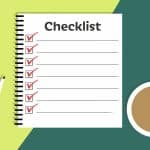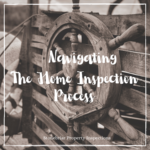By Keith Boggs
Posted January 15, 2020 at 10:00am CT
So, you’ve made an offer on a house and have entered the “option period” — those critical five to ten days during which you must assess the home’s condition, identify issues, negotiate for repairs on certain items, and come to a final agreement with the current owners regarding what they will and won’t fix and when. There’s a lot to do in that small window of time!
With so much to think about, we thought we’d share a simplified checklist with links to helpful information, so you don’t have to wade through copious amounts of information to make sure the process is as effective as possible.
Home Inspection Checklist for Buyers
- First, learn how the process works.
- Find a qualified, experienced home inspector.
- Collect recommendations from friends, family, and your realtor.
- Review inspector websites, Better Business Bureau ratings, and reviews on Google and Facebook to collect more information.
- Create a shortlist of companies to call.
- Call inspectors for a brief discussion.
- Ask these 13 questions.
- Ask if they offer zip level and thermal imaging camera analysis.
- Obtain a sample report.
- Request a quote, making sure you understand what is and is not included.
- Make a decision on who to hire.
- Sign and return your contract.
- Do a pre-evaluation during one of your walkthroughs.
- Request a seller’s disclosure statement.
- Inside the house:
- Look in detail at structural components like walls, ceilings, fixtures, molding, doors, windows, cabinets, and closets.
- Look for signs of water damage (discoloration or stains).
- Look for signs of foundation movement (cracks, nail pops, misaligned doors.
- Test light switches and plumbing fixtures.
- Outside the house:
- Walk around the entire perimeter of the property.
- Look in detail at structural components like gutters and downspouts, walls, the roof, and chimney.
- Look at the landscaping, fence, outbuildings, pool, spa, and garage.
- Pay special attention to drainage and the home’s foundation.
- Take detailed notes and determine what you might want to discuss with your home inspector before he performs the job.
- Schedule and prepare.
- Schedule a date and time when you can be there.
- Confirm the date and time with all parties involved — sellers, realtors, and the inspector.
- Confirm that:
- The current owners won’t be on the home during the inspection.
- All keys and necessary codes will be available to the inspector.
- The electricity and water will be turned on.
- All appliances will be installed, connected to power, and accessible.
- All areas needing to be inspected will be accessible.
- Documentation on repairs, replacements, warranties, and insurance claims will be available.
- Pets will be crated or taken elsewhere.
- Share your findings, concerns, and questions with the inspector prior to the big day.
- Be there on inspection day.
- Use your time there to further assess the home and yard.
- After the inspector has completed his work, discuss his findings and ask questions about specific items.
- Confirm when you’ll receive the report.
The results of a home inspection can affect a pending sale in many ways. Once you’ve received the report, call the inspector to ask any clarifying questions and do a bit of research into how you might want defects to be addressed and at what cost. Work with your real estate agent to decide whether to negotiate for defect repairs, financial concessions, and/or a home warranty. And if you agree to the seller making repairs, decide if you want to have them re-inspected. Keep in mind, also, that your mortgage lender may request their own appraisal and have minimum standards that may require fixing before they will fund the loan.
Buying a home can be an overwhelming, action-packed time in your life. We hope this home checklist provides you with the information you need to simplify this part of the process. And we hope you’ll reach out to us with any questions!
Image Credit: mohamed hassan via pxhere
About Keith Boggs
Keith Boggs is the owner of Stonebriar Property Inspections. He is your personal home inspector, and his investment in the company will be reflected in the quality of your inspection. Mr. Boggs’ reports are professional, comprehensive, detailed, and clear. They average about 70 pages and include 80 to 100 color images and include detail findings and recommendations along with tips and best practices for maintaining your home. Stonebriar Property Inspection’s customer reviews speak to Keith’s reputation as an ethical, reliable, and courteous Dallas home inspector. Stonebriar Property Inspections is fully licensed by the Texas Real Estate Commission for home inspections and the Texas Department of Agriculture for termite/wood destroying insect inspections.





